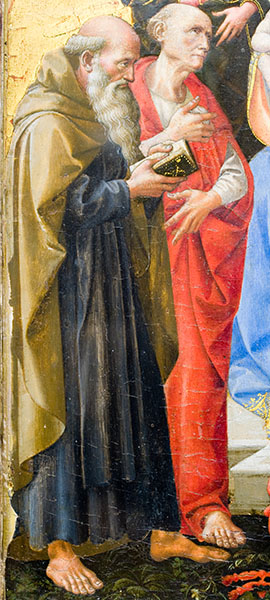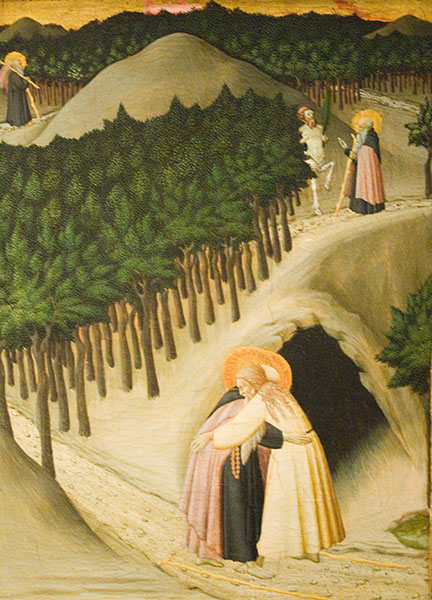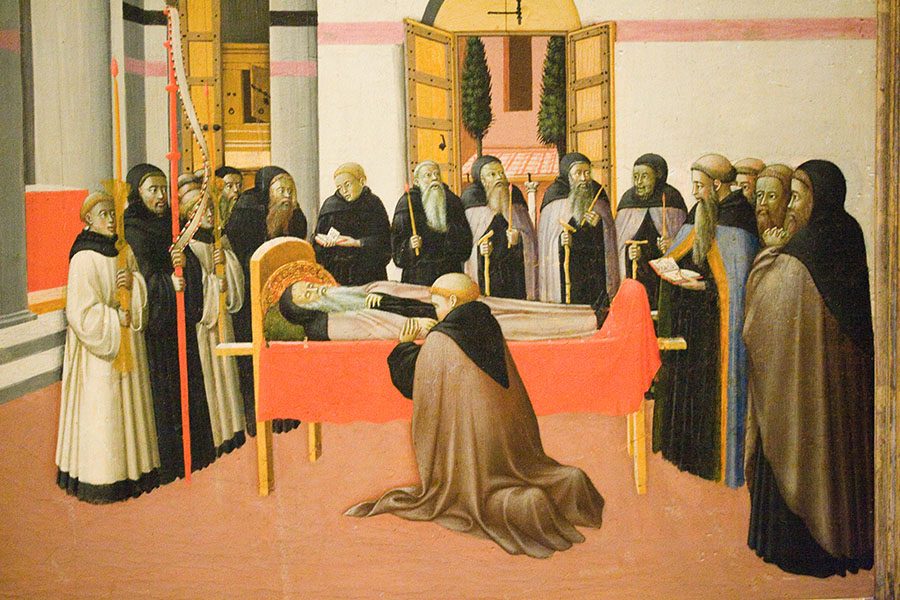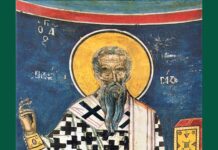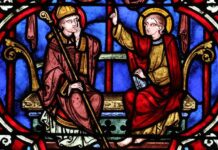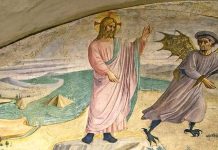Memorial of St. Anthony of Egypt

St. Anthony of Egypt, abbot. Great patriarch and master of monastic life. Desiring perfection, he began to live as an anchorite at the age of 20, in the regions outlying his native village, and he went on to take up his abode in increasingly remote locations in the desert. The fame of his extraordinary life spread, influencing many other souls to follow a similar path. He was a victorious against the attacks of the devil until his death in 356, at the age of 105. His most eminent biographer was St. Athanasius.
Other featured Saints
St. Marcellus, bishop (†510). Of the Dioceses of Die, France. He was exiled by the Arian king, Eurico.
St. Sulpicius the Pious, bishop (†647). Bishop of Bourges, France, admirable for his generosity, especially with the poor and the sick, and the austerity of his private life. He is known to have converted all the inhabitants of his diocese with his inspiring example of holiness.
Blessed Gamelbert, priest (†circa 802). A wealthy young man, he was ordained priest and successfully combined pastoral ministry with hermetic life. He gave all his possessions to found the monastery of Metten, Germany.
St. Januarius Sánchez Delgadillo, priest and martyr (†1927). Promoted religious instruction of children; killed during the anti-Christian persecution in Mexico.
St. Rosalina, virgin (†1329). From a French noble family, she renounced a favourable marriage and became a Carthusian nun and eventually the prioress of the Chartreuse of CelleRoubaud, in Provence, France, excelling in abnegation and austerity.
Mass Reading
First Reading – 1 Sm 15:16-23
Samuel said to Saul:
“Stop! Let me tell you what the LORD said to me last night.”
Saul replied, “Speak!”
Samuel then said: “Though little in your own esteem,
are you not leader of the tribes of Israel?
The LORD anointed you king of Israel and sent you on a mission, saying,
‘Go and put the sinful Amalekites under a ban of destruction.
Fight against them until you have exterminated them.’
Why then have you disobeyed the LORD?
You have pounced on the spoil, thus displeasing the LORD.”
Saul answered Samuel: “I did indeed obey the LORD
and fulfill the mission on which the LORD sent me.
I have brought back Agag, and I have destroyed Amalek under the ban.
But from the spoil the men took sheep and oxen,
the best of what had been banned,
to sacrifice to the LORD their God in Gilgal.”
But Samuel said:
“Does the LORD so delight in burnt offerings and sacrifices
as in obedience to the command of the LORD?
Obedience is better than sacrifice,
and submission than the fat of rams.
For a sin like divination is rebellion,
and presumption is the crime of idolatry.
Because you have rejected the command of the LORD,
he, too, has rejected you as ruler.”
Responsorial Psalm – Ps 50:8-9, 16bc-17, 21 and 23 (R.23b)
“Not for your sacrifices do I rebuke you,
for your burnt offerings are before me always.
I take from your house no bullock,
no goats out of your fold.” R.
“Why do you recite my statutes,
and profess my covenant with your mouth,
Though you hate discipline
and cast my words behind you?” R.
“When you do these things, shall I be deaf to it?
Or do you think that I am like yourself?
I will correct you by drawing them up before your eyes.
He that offers praise as a sacrifice glorifies me;
and to him that goes the right way I will show the salvation of God.” R.
Gospel – Mk 2:18-22
The disciples of John and of the Pharisees were accustomed to fast.
People came to Jesus and objected,
“Why do the disciples of John and the disciples of the Pharisees fast,
but your disciples do not fast?”
Jesus answered them,
“Can the wedding guests fast while the bridegroom is with them?
As long as they have the bridegroom with them they cannot fast.
But the days will come when the bridegroom is taken away from them,
and then they will fast on that day.
No one sews a piece of unshrunken cloth on an old cloak.
If he does, its fullness pulls away,
the new from the old, and the tear gets worse.
Likewise, no one pours new wine into old wineskins.
Otherwise, the wine will burst the skins,
and both the wine and the skins are ruined.
Rather, new wine is poured into fresh wineskins.”




